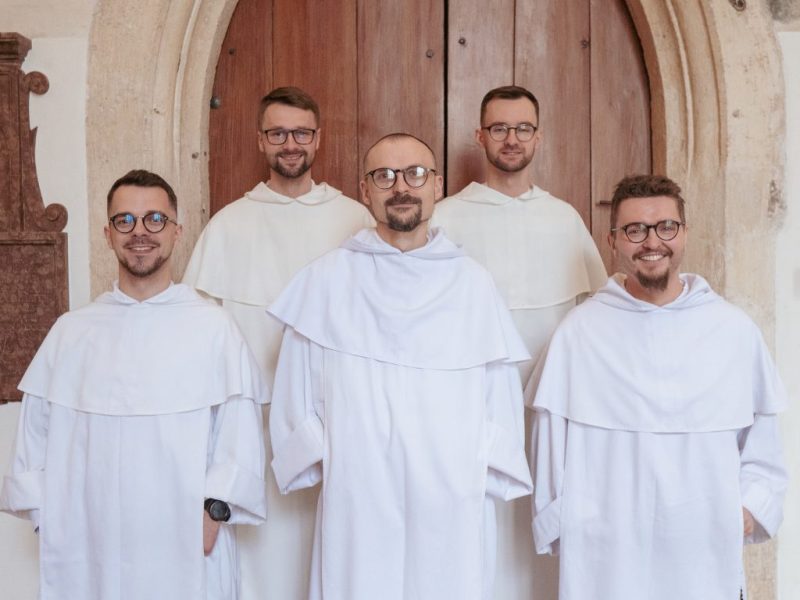The Order
The Order of Preachers was founded by Dominik Guzman, born in Calerueda, Spain. While travelling through medieval Europe, Dominic noticed spiritual poverty of the people and wanted to establish a community that could help it. Those who began to gather around him were to dedicate their lives to God, and, together as a community, contemplate God’s truth and celebrate the liturgy. Following the example of the apostles, they were to preach the Word everywhere, to everyone and in every possible way.
Dominic’s idea was to combine prayer and pastoral service, interior life and itinerant preaching. The friars were to be thoroughly educated and constantly study the Holy Scriptures. This would prepare them to face the spread of heresies, lecture on the truths of faith, and also preach sermons and hear confessions, which was completely new as at that time only bishops were entitled to do it.
Dominic sent his brothers to the four corners of the earth, saying: “The seed that is scattered brings forth fruit, but if it is gathered together in one place, it rots.” In this way, the community grew very quickly. Pope Honorius III officially approved the Dominican Order in 1216.
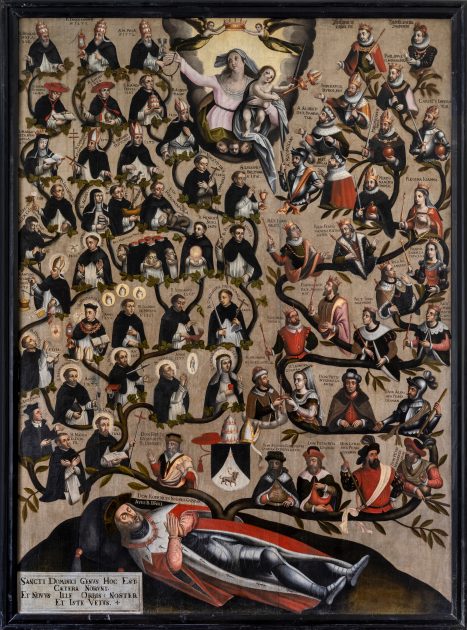
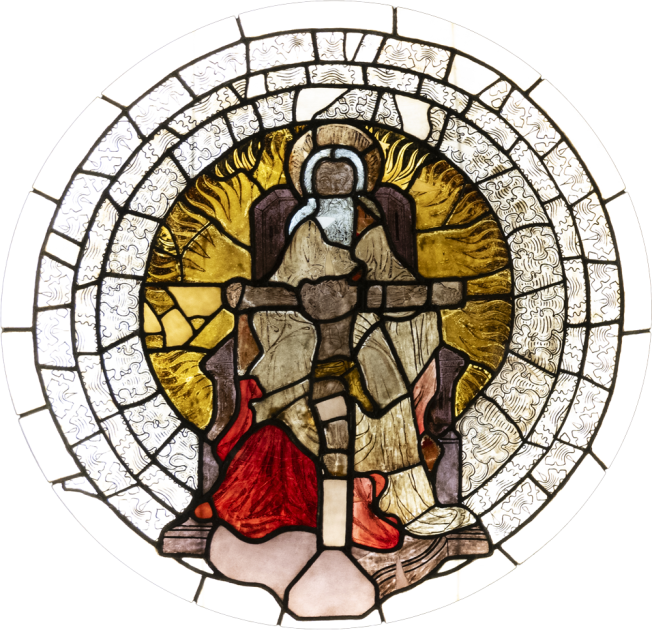
The Order of Preachers in Poland
A few years later, Iwo Odrowąż, bishop of Krakow, visited Rome and introduced to St. Dominic his three companions: two relatives, Jacek [Hyacinth] and Czesław, and Herman”. Saint Dominic received them, dressed them in habits and kept them with himself for a whole year, until they learnt humility, chastity and other rules of the Order and were ready to take vows. On their way back, the first Polish Dominicans preached the Word, accepted more brothers as members of their community, and founded monasteries. Finally, on the 1st of November 1222, they arrived in Krakow. Bishop Iwo entrusted the preachers with the Holy Trinity Church and a large area between the Little Market Square and the Dominican Square.
Spread of the Order
The new priory was developing dynamically, and there were so many people willing to join the ranks of preachers that after a few years they were sent to other places – to Prague, Wroclaw, Gdansk, Kamien in Pomerania, Plock and Sandomierz.
The brothers devoted themselves to prayer and study, but in accordance with their charism – they often preached the Word in nearby chapels and churches, and even in squares. Their sermons were the only form of catechesis at that time. While the administration of sacraments was reserved only to parishes, many Dominicans received permission from the Holy See to hear confessions. Many people, including those from wealthy knightly families, would go for a confession at the Holy Trinity Church; the friars were also permanent confessors at the royal court.
Meanwhile, St. Hyacinth set out deep into Poland, Prussia and Ruthenia, where he evangelised and spread the cult of the Blessed Sacrament and the Blessed Virgin Mary. He was named “Apostle of the North” and “Preacher of God”. After many years, he finally returned to Krakow, where, in the opinion of holiness, he died on the 15th of August 1257, on the feast of the Assumption of the Blessed Virgin Mary.
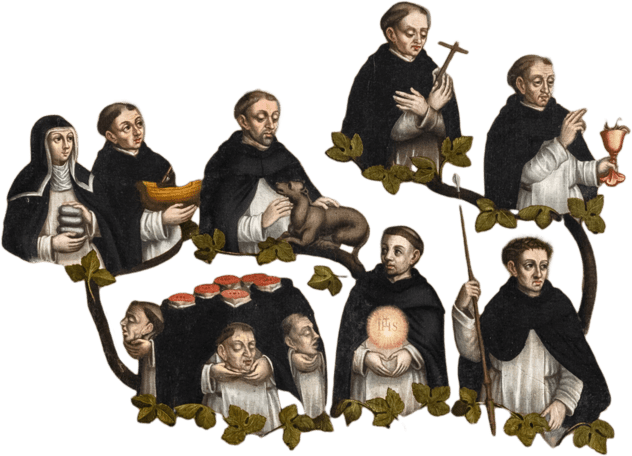
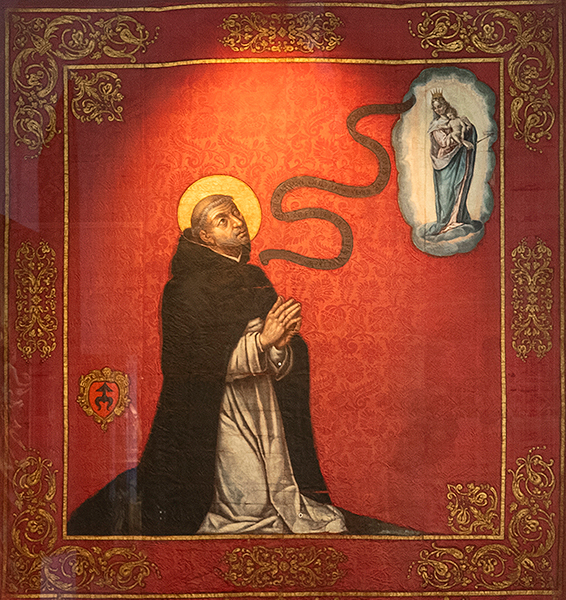
The Dominicans also distinguished themselves in the field of culture: they chronicled the history of Poland, wrote theological treatises, lives of saints, and produced valuable liturgical books.
As early as in the 14th century, Studium Generale, a place for educating brothers and professors, was established at the Krakow priory, and in 1450 it became part of the Jagiellonian University. Plenty of masterpieces were created at the priory, including the works of an Italian painter, Thomas Dolabella, as well as other precious objects produced to serve liturgical purposes. Unfortunately, many of those pieces of art and valuable monuments were stolen by the Swedes in the 17th century; huge destruction was also brought by the Napoleonic Wars and a great fire that swept through Krakow in 1850 and completely burnt about 16,000 volumes from the priory’s rich library collections. The fate of the friars was greatly influenced by the turbulent history of the Polish-Lithuanian Commonwealth. Although until the partitions the order of preachers was one of the largest in our lands, in the 18th century there was a crisis of religious life and a decline in vocations. Only after regaining independence by Poland, both the Krakow convent and the remaining monasteries could slowly start to develop again.
At present
In the 20th century, there was a gradual renewal of the Dominican charism in Poland. Among the brothers there were many outstanding intellectuals and lecturers, such as Jacek Woroniecki or Józef Maria Bocheński, as well as social activists, such as Gen. Adam Studziński and the chaplain of the Warsaw insurgents, Michał Czartoryski. Preaching also resulted in establishing many dynamic pastoral groups, especially academic ones, led by respected fathers, including Joachim Badeni and Tomasz Pawłowski. Finally, in the troubled time of the Polish People’s Republic (PRL), Dominican monasteries were a place where opposition circles would find a refuge. Currently, the Polish province of the Order of Preachers consists of twenty monasteries. Today, the activities of the Dominicans are associated with beautiful liturgy, especially singing, which is greatly promoted by the Dominican Liturgical Centre Foundation. Apart from taking care of the beauty of liturgical music, the Foundation evangelises by means of publishing books and a monthly magazine “On the way”, running the website dominikanie.pl and organising plenty of retreat sessions. Dominicans also work with high school and university students, organise courses for married and engaged couples, as well as lead many intellectual initiatives, such as the activities of the Thomistic Institute or lectures on philosophy and theology for the laity.
